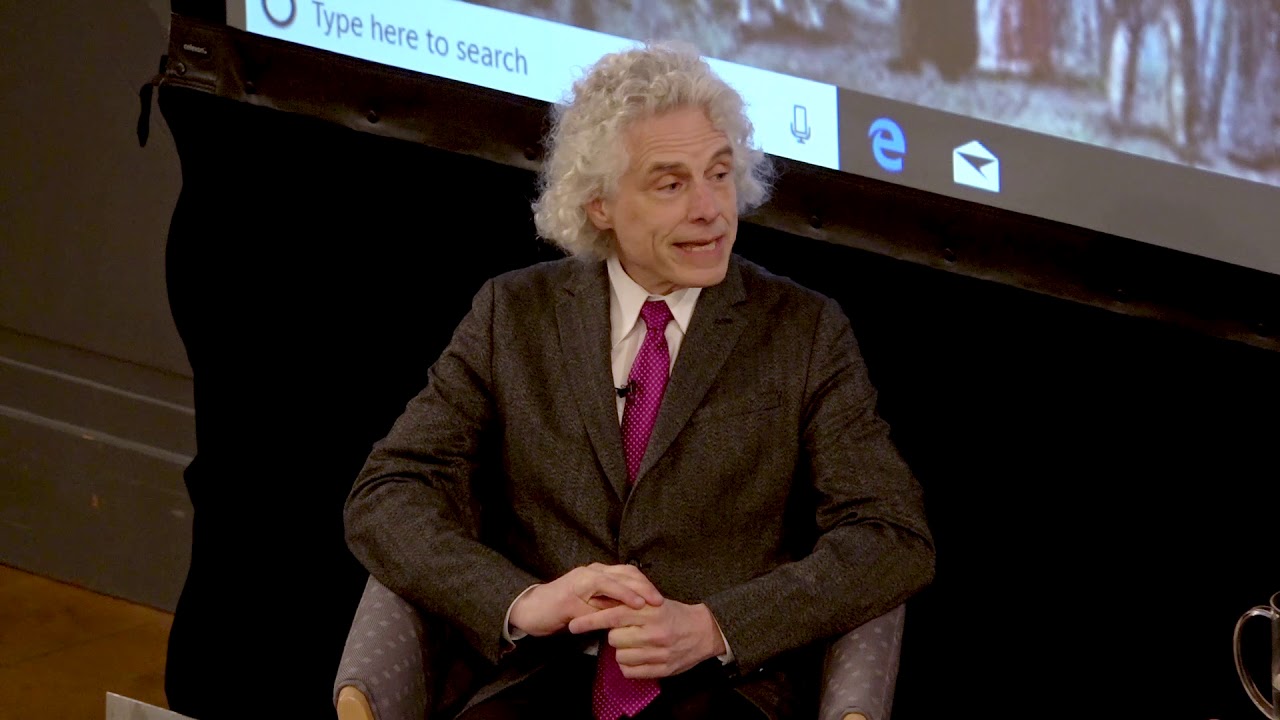Oxford Martin School
Blackwell’s are delighted to be hosting Steven Pinker at the Sheldonian Theatre to discuss his latest book, Enlightenment Now, in conversation with Ian Goldin
Is modernity really failing? Or have we failed to appreciate progress and the ideals that make it possible?
If you follow the headlines, the world in the 21st century appears to be sinking into chaos, hatred, and irrationality. Yet Steven Pinker shows that this is an illusion – a symptom of historical amnesia and statistical fallacies. If you follow the trendlines rather than the headlines, you discover that our lives have become longer, healthier, safer, happier, more peaceful, more stimulating and more prosperous – not just in the West, but worldwide. Such progress is no accident: it’s the gift of a coherent and inspiring value system that many of us embrace without even realizing it. These are the values of the Enlightenment: of reason, science, humanism and progress.
The challenges we face today are formidable, including inequality, climate change, Artificial Intelligence and nuclear weapons. But the way to deal with them is not to sink into despair or try to lurch back to a mythical idyllic past; it’s to treat them as problems we can solve, as we have solved other problems in the past. In making the case for an Enlightenment newly recharged for the 21st century, Pinker shows how we can use our faculties of reason and sympathy to solve the problems that inevitably come with being products of evolution in an indifferent universe. We will never have a perfect world, but – defying the chorus of fatalism and reaction – we can continue to make it a better one.
About the speakers
Steven Pinker is an experimental psychologist who conducts research in visual cognition, psycholinguistics, and social relations. Currently Johnstone Professor of Psychology at Harvard, he has also taught at Stanford and MIT. He has won numerous prizes for his research, his teaching, and his nine books, including The Language Instinct, The Better Angels of Our Nature, and The Sense of Style. He is an elected member of the National Academy of Sciences, a two-time Pulitzer Prize finalist, a Humanist of the Year, a recipient of nine honorary doctorates, and one of Time’s “100 Most Influential People in the World Today.” He writes frequently for The New York Times, The Guardian, and other publications.
Ian Goldin was the founding Director of the Oxford Martin School from September 2006 to September 2016. He is currently Oxford University Professor of Globalisation and Development and the Director of the Oxford Martin Programme on Technological and Economic Change. He is a Senior Fellow at the Oxford Martin School and a Professorial Fellow at the University’s Balliol College.
Oxford Martin School,
University of Oxford
www.oxfordmartin.ox.ac.uk
Source




In his latest book, status quo warrior Pinker says people who identify as progressive "actually hate progress" because their aggressive push for reform is somehow unthankful for the cell phones and vaccinations that western civ has provided for them. He wonders what there is to cry about when GDP is high? He complains about "SJW"s and paints the left as "pessimistic" whereas his metrics and statistics are meant to espouse a certain optimism, but this is backwards: he's really the pessimistic one in his doubt that we as a society should raise the bar further, and we who recognize the need for aggressive reform are optimistic that we can achieve it despite curmudgeons like Pinker who try to dissuade good people from activism with empty, condescending rhetoric and cherry-picked data. Steal his book and take a drink every time you roll your eyes. There's a 0% chance that history looks back kindly on Pinker's reactionary commentary
I am comforted by the willingness and ability of a great mind to don 'Seven League Boots' and pace toward the sunrise. We will survive this.
28:00
Unable to relate ourselves to a tribe in this world is awful. Hope I would get an answer about how to live life in such a circumstance from his book.
I love the comment made at 16:41
Not sure how it’s possible to be doubtful about the value of supranational political structures, but positive about the EU. Would be interested to discover how it is possible to be accurate about the demographic that voted for it, when the purpose of voting is that it’s an anonymous process, and whilst there will always be those who do not vote as we would like them to, this is surely no reason to look forward to their departure. There are serious issues being raised about the way we choose to be governed in Europe and they deserve more consideration.
I've said "eloquently put" more often than not
Elite white folks like Pinker perpetuate the myth, the big lie about progress. That we could create a perfect society. That human endeavours can make the world a better place while all evidence shows that it's become far worse. Simple folks seem to love Steven Pinker and his bourgeois eloquence, in place of the facts, reality and the sufferings of millions of human being that rises every year every day. His analysis is unplugged from reality.
Enlightenment gave Jacobians, Utopia and Fascism too.
Need to look at the cost of living like this though, hope he mentions this in a future book. It's all a bit rose tinted atm. Good to hear a positive view though 🙂 Need to take what we've learned from all spheres I think and head to ways that work for the whole of it not just us. Enlightenment is at the end of its era, there's been good and bad, next philosophies will perhaps shift away from the anthropocentric, away from the mind/us as god, to us as an integral part. Hopefully. Fill it all back up again, us too.